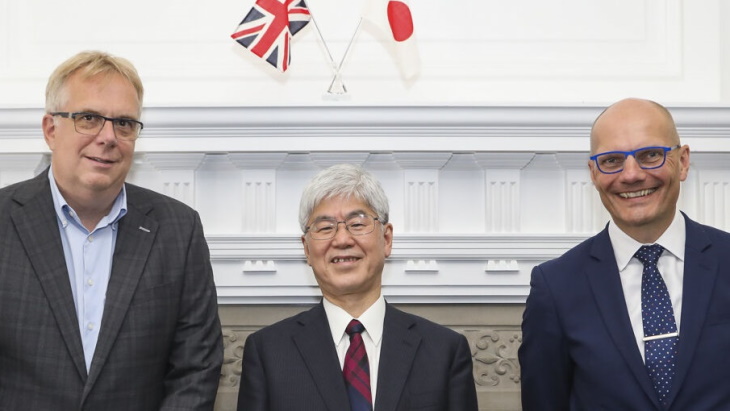
As NNL's multi-discipline design consultant, Jacobs will review the initial designs and delivery plans for the high temperature gas reactor (HTGR). The company will: help develop cost and schedule estimates as part of a broader investment case submission to HM Treasury; review market demand and end-use cases for HTGR technology; carry out a detailed engineering design review to ensure regulatory compliance; and support engagement with UK regulators.
"We will deploy our deep experience and knowledge of nuclear reactor technology to help deliver a power plant with the potential to contribute to one of the most challenging aspects of energy transition - the decarbonisation of heavy industry such as steel and cement production," said Jacobs Vice President Andy White.
In September 2023, NNL and the Japan Atomic Energy Agency (JAEA) signed a memorandum of cooperation in the field of HTGRs, as well as a memorandum for collaboration on the next stage of the UK HTGR Demonstration Reactor programme.
In December 2022, the UK government announced funding of GBP60 million (USD77 million) for research into HTGRs, a type of advanced modular reactor (AMR), aimed at helping to get a demonstration project up and running by the end of the decade. Following an initial call for evidence, the focus for the AMR R&D programme was placed on HTGR technology last year.
Phase A of the AMR R&D programme led to six successful bidders for pre-FEED (Front End Engineering Design) studies for reactor demonstration and fuel demonstration. Phase B is described as "an open, competition-based programme designed to produce up to two HTGR FEED mature enough to enter regulatory review, carry out associated research and development activities, and produce robust delivery plans for a potential Phase C". Phase B will conclude in February 2025. Phase C will see the licensing, construction and operation of an HTGR in the early 2030s.
On 18 July last year, the UK Department for Energy Security and Net Zero (DESNZ) announced that a team comprising NNL and JAEA was selected as one of the project entities to implement the Phase B reactor project. They received funding of GBP31 million. In parallel, DESNZ also announced that Phase B will also push the development of an advanced fuel required for AMRs, through the Coated Particle Fuel (CPF) - Step 1 Programme. NNL, working with JAEA, has been selected by DESNZ to deliver this fuels programme which will build expertise, knowledge and collaboration on coated particle fuel fabrication and scale-up activities.
"This is a groundbreaking project," said NNL VP for Government and New Build Emma Vernon. "We are looking forward to working together on the development of the UKJ-HTR design, through this phase of the DESNZ competition, which will help UK industry to adapt to a changing world and take a step closer to achieving our net-zero goals."
The governments of the UK and Japan expect HTGRs to contribute to the decarbonisation through the supplement of hydrogen and high-temperature steam to the processing, steelmaking and chemical industries, considered difficult to decarbonise, to achieve carbon neutrality by 2050. JAEA is collaborating with NNL to demonstrate Japanese HTGR technology outside of Japan and to promote its social implementation with the aim of returning the decarbonisation technology to Japan.